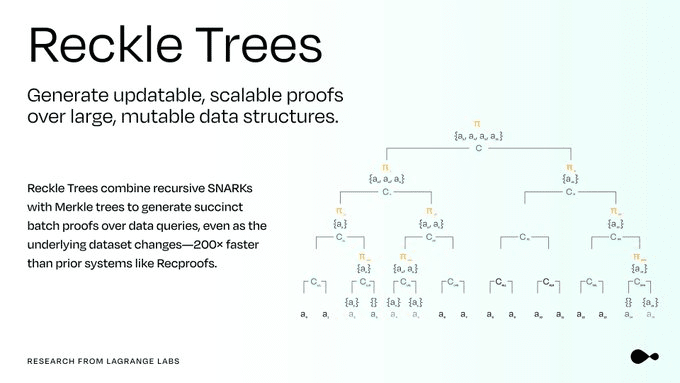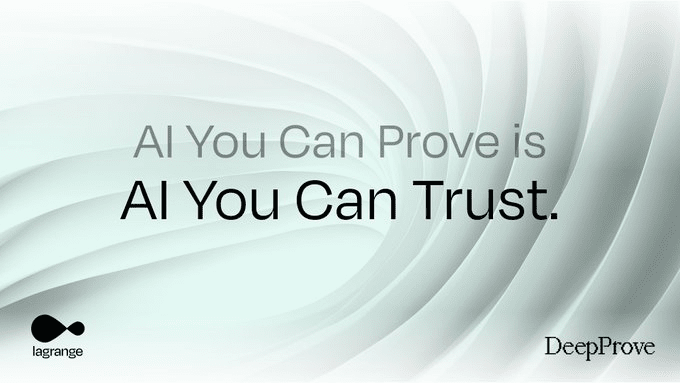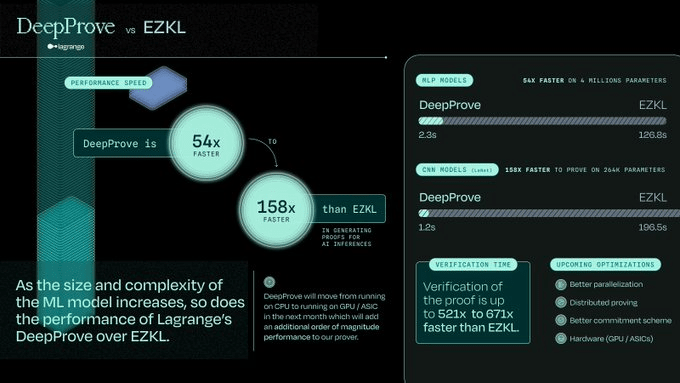Today, I want to talk to you about a project that doesn't have much flashy marketing, but every time I see its progress, I feel we're a step closer to the 'holy grail' of Web3. This project is Lagrange.
You may have heard of it, or maybe not, it doesn't matter. Today, I won't discuss the complex details of ZK (Zero-Knowledge Proof) technology; let's start with a very simple and fundamental question: Is the blockchain's 'brain' sufficient?
We all know that blockchain is secure and transparent, but to be honest, its ability to handle complex computations is really weak, like an accountant who is reliable but has limited mental arithmetic skills. Want to do slightly more complex strategy backtesting with a DeFi protocol? Difficult. Want a game to implement a huge economic model on-chain? Expensive. Want AI to combine with blockchain? Even more of a fantasy.
We previously thought Layer2 was the solution. But Layer2 is more about widening the road to allow for faster traffic; if you want every car to solve a complex math problem on the spot, it doesn't matter how wide the road is.
This is where I think Lagrange is on the right track.

What is Lagrange doing? It is equipping blockchain with an infinitely scalable 'external brain', officially called ZK Coprocessor (Zero-Knowledge Coprocessor).
Imagine all those cumbersome, complex, and costly computing tasks, like analyzing millions of on-chain transaction data, verifying an AI model's inference results, or even cross-chain verification of complex states on another chain... all of it can be handed over to Lagrange's 'external brain' for off-chain processing.
After processing, it won't throw a bunch of raw data back at you, but will generate a very concise and lightweight 'credential' (which is the ZK proof), telling the main chain: 'Hey, I've finished this calculation, the result is XXX, and I guarantee it's correct; you can absolutely trust me.'

Why does this excite me?
1. It makes the 'impossible' possible (creativity dimension 💡)
I previously thought 'verifiable AI' was a distant concept. We all know AI is powerful, but we also fear its 'black box'. Lagrange is turning this into reality. Through its technology, every inference of an AI model can generate a ZK proof to confirm that its output has not been tampered with and that the process is fair. What does this mean? Future decentralized AI applications, game NPCs that require absolute fairness, and decision models in sensitive areas can all be built on a trustworthy foundation. This is no longer just 'Crypto'; it is a technology that can truly impact the real world.
2. Professional strength, top players entering the arena (professionalism dimension 📈)
When discussing a project, we cannot just look at the concept; the players and data behind it speak volumes. Lagrange Labs has an impressive funding background, led by Peter Thiel's Founders Fund. Friends familiar with the venture capital circle should know what this means—these people invest in 'hardcore technology' that can change the industry landscape, not in short-term speculative memes.
What makes me feel more reliable is its ecological cooperation. It is not just building behind closed doors, but has already formed deep ties with big names like EigenLayer, Base, Mantle, and Frax Finance. Especially as one of the earliest AVS on EigenLayer, it has attracted over 85 node operators, including Coinbase and Kraken. This is not simple 'cooperation publicity', but genuinely building its security and network on top of Ethereum's core consensus layer, which is real trust.
On-chain data doesn't lie; over 11 million ZK proofs generated, serving over 140,000 users, this is not a project still just making promises.
3. Closely tied to the two major narratives of 'modularity' and 'cross-chain' (relevance dimension 🌐)
We are currently in an era of multi-chain coexistence, and 'cross-chain' is a necessity. But we all know how fragile traditional cross-chain bridges are. Lagrange offers a brand new approach: by generating state proofs for the target chain, any chain can 'lightweight' and trustlessly verify what happens on another chain. For example, a DeFi protocol on Chain A can almost in real-time and absolutely securely know how much asset you have staked on Chain B, thus providing you with a cross-chain loan. This is safer and more decentralized than any centralized oracle or multi-signature bridge.
At the same time, it perfectly fits the narrative of 'modular blockchain'. Execution layer, settlement layer, data availability layer... Now, Lagrange is becoming the indispensable 'verifiable computing layer'.
Let's talk 'human language': what does this mean for us ordinary users?
After saying so much, it might still be a bit abstract. To put it simply, if a project like Lagrange succeeds:
We can enjoy more complex and interesting blockchain games, whose economic systems are no longer limited by Gas Fees.
DeFi gameplay will experience a major explosion, with all sorts of complex financial derivatives and insurance protocols that were previously unimaginable becoming possible.
When we need to interact with AI, whether for financial decisions or content generation, we gain a 'verifiable' right, no longer having to trust blindly.
Our multi-chain asset management will become extremely smooth and secure.
Of course, Lagrange also faces challenges. The popularization of ZK technology, the construction of the developer ecosystem, and how to bind the value of $LA Token more closely to network growth are all issues it needs to continuously solve. Its token economic model is quite interesting, using protocol revenue (money paid by others to generate proofs) to buy back $LA; this direct demand-driven model is worth long-term observation.

The reason I want to talk about Lagrange today is not to make everyone rush in immediately, but to provide an observation sample. In the noisy market, we should pay more attention to these teams that are quietly building foundational infrastructure. They may not see a 500% increase in a day, but what they are doing will determine what the Web3 world looks like three to five years from now.
Alright, that's all for today. I would love to hear everyone’s thoughts on Lagrange, or what other better solutions you think exist for the blockchain 'computing bottleneck'? Do you think 'verifiable AI' is a real need or a false proposition? Feel free to leave your thoughts in the comments, and let's discuss together. Peace out.


